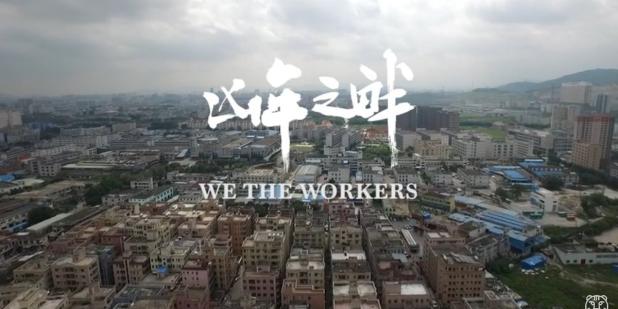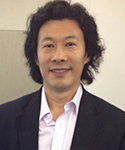Join us for a free one-day workshop for educators at the Japanese American National Museum, hosted by the USC U.S.-China Institute and the National Consortium for Teaching about Asia. This workshop will include a guided tour of the beloved exhibition Common Ground: The Heart of Community, slated to close permanently in January 2025. Following the tour, learn strategies for engaging students in the primary source artifacts, images, and documents found in JANM’s vast collection and discover classroom-ready resources to support teaching and learning about the Japanese American experience.
Screening: We the Workers
The USC U.S.-China Institute presents a screening of the film We the Workers 凶年之畔, which follows labor activists over a six-year period as they find common ground with workers, helping them negotiate with local officials and factory owners over wages and working conditions. The screening will be followed a Q&A with Han Dongfang, founder and director of the China Labour Bulletin.
Where

Click here to watch a video of Han Dongfang's discussion.
About the Film
Shot over a six-year period (2009-2015) in the industrial heartland of south China, a major hub in the global supply chain, We the Workers follows labor activists as they find common ground with workers, helping them negotiate with local officials and factory owners over wages and working conditions. Threats, attacks, detention and boredom become part of their daily lives as they struggle to strengthen worker solidarity in the face of threats and pressures from the police and their employers. In the process, we see in their words and actions the emergence of a nascent working class consciousness and labor movement in China. The film was part of the 2017 International Film Festival Rotterdam and other festivals. The film was directed by Huang Wenhai 黄文海 and produced by Zeng Jinyan 曾金燕;。The screening will be followed a Q&A with Han Dongfang, founder and director of the China Labour Bulletin.
About Han Dongfang 韩东方
 Han Dongfang, then a twenty-six year-old railway worker, became involved in China's pro-democracy movement on April 15, 1989, the day Hu Yaobang died. But it was not until May 20, when he joined the Beijing Workers Autonomous Federation (BWAF 北京工人自治联合会) one day after it was formed, that he found his niche. The BWAF, the first independent union since the founding of the People’s Republic of China in 1949, grew to some 200 members before it was banned on June 4. Han’s emergence as its leader earned him the top spot on the list of wanted worker leaders.
Han Dongfang, then a twenty-six year-old railway worker, became involved in China's pro-democracy movement on April 15, 1989, the day Hu Yaobang died. But it was not until May 20, when he joined the Beijing Workers Autonomous Federation (BWAF 北京工人自治联合会) one day after it was formed, that he found his niche. The BWAF, the first independent union since the founding of the People’s Republic of China in 1949, grew to some 200 members before it was banned on June 4. Han’s emergence as its leader earned him the top spot on the list of wanted worker leaders.

Featured Articles
Please join us for the Grad Mixer! Hosted by USC Annenberg Office of International Affairs, Enjoy food, drink and conversation with fellow students across USC Annenberg. Graduate students from any field are welcome to join, so it is a great opportunity to meet fellow students with IR/foreign policy-related research topics and interests.
RSVP link: https://forms.gle/1zer188RE9dCS6Ho6
Events
Hosted by USC Annenberg Office of International Affairs, enjoy food, drink and conversation with fellow international students.
Join us for an in-person conversation on Thursday, November 7th at 4pm with author David M. Lampton as he discusses his new book, Living U.S.-China Relations: From Cold War to Cold War. The book examines the history of U.S.-China relations across eight U.S. presidential administrations.




